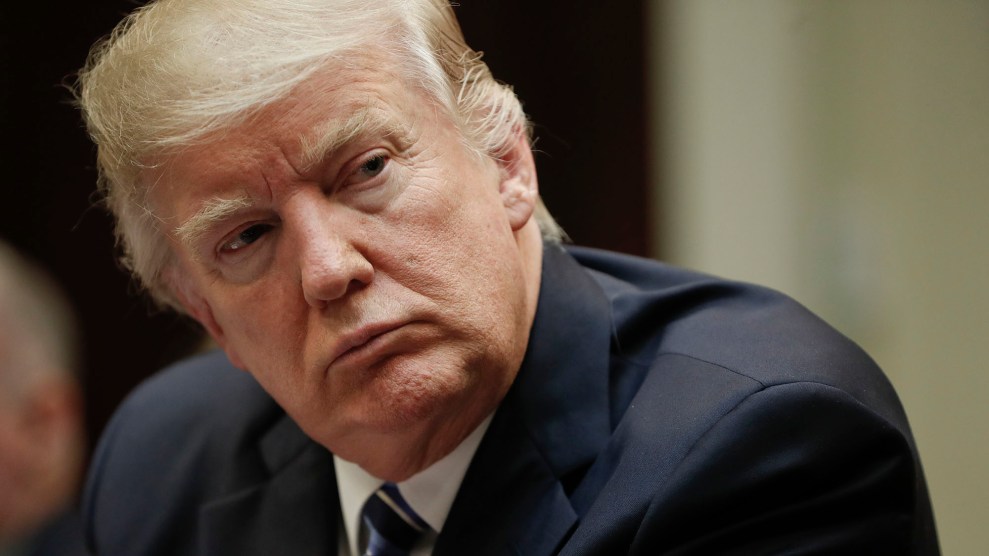
Olivier Douliery/CNP/ZUMA
A group of House Republicans delivered conservatives’ first official rebuke of President Donald Trump’s health care bill Thursday morning, voting against the GOP’s plan to repeal and replace Obamacare. During a House Budget Committee hearing, three members of the conservative Freedom Caucus—Reps. Mark Sanford (R-S.C.), David Brat (R-Va.), and Gary Palmer (R-Ala.)—joined every Democrat in voting against moving the legislation to the House floor. However, the rest of the committee’s Republicans supported the bill, and it narrowly passed on a 19-17 vote.
The Freedom Caucus has attacked the repeal bill because it maintains Obamacare’s Medicaid expansion until 2020 and offers refundable tax credits for people who buy insurance on the individual market. It’s hard to know whether the three Freedom Caucus members on the Budget Committee were truly committed to killing the bill; members of Congress frequently cast politically expedient votes when they know a bill will pass regardless of what they do. Still, their opposition spells trouble for the proposal’s prospects when it reaches the full House.
The Freedom Caucus doesn’t have an official membership list, but it reportedly includes roughly 40 GOP members of Congress. If every Democrat opposes Trumpcare, 22 GOP “no” votes would be enough to defeat the bill. That means the Freedom Caucus has plenty of clout to kill the plan if the rest of its members have the same views as Sanford, Brat, and Palmer.
Paul Ryan and the White House seem to recognize this problem and are scrambling to find ways to appease conservatives and modify the bill before it comes to a full House vote. But that could pose another problem: The Freedom Caucus’ complaint is that the bill isn’t conservative enough and that it needs to offer less generous benefits. The Congressional Budget Office already measured the effects of the current bill and found that the GOP plan would insure 24 million fewer people by 2026 than Obamacare. Tinkering with the bill to meet the Freedom Caucus’ demands would likely result in even more people lacking insurance, something that could prompt moderate Republicans to turn against Trumpcare.















